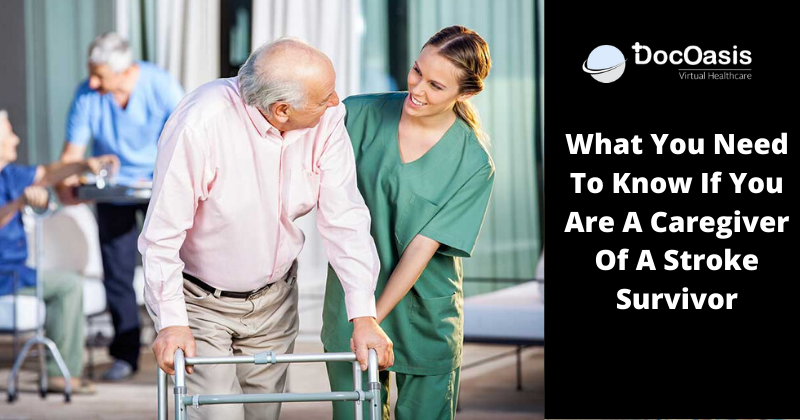A stroke may be frightening to both the survivor and the family. Immediately after stroke it’s not unusual to feel overwhelmed, uncertain, about your newly added role as a caregiver. The common question that comes to the mind as a caregiver “Will My Loved Ones Recover from STROKE?”
Stroke recovery varies from person to person and is nearly impossible to predict. Some people can recover completely, some survivors require long-term care because of the severity of the impairments, some soon die after a stroke. Recovery from a stroke can vary from few days to months to years. It is determined by where in the brain the stroke occurred. For example, in which portion of the brain the stroke occurred. How much of the brain is affected, the survivor’s motivation, caregiver support, the quantity and quality of rehabilitation and the survivor’s health before the stroke.
What You Need To Know As a Caregiver
- Educate Yourselves:
- The first thing you should do as a caregiver is to ask questions for example What type of stroke did your loved one have? What side of the brain was affected? What caused the stroke? How can another stroke be prevented?
- Build a network with other stroke survivors and caregivers.
- Avoid Falls: Falls after stroke is common. So, the first thing as a caregiver one should take into consideration is to make the home safer to avoid falls. For example, if there is a way the patient can avoid stairs, is there a way to put grab bars and seats in the bathroom and shower.
- Reduce the risks of having another stroke: Survivors are at a higher risk for a second stroke, so it’s important to help minimize that risk. Along with it, is also important to recognise the signs of Stroke.The risk of having another stroke goes up with the older age, high blood pressure, high cholesterol, diabetes, obesity, heart disease, cigarette smoking, use of alcohol and drug use. Though some of these risk factors cannot be controlled for example age, gender but some of these could be reduced through use of prescribed medicines by doctor or change of lifestyle.
- Focus on a healthy life style: After a stroke it is crucial to get all the nutrients your brain needs for a fast recovery from stroke. Neurogenesis helps to regenerate new cells and compensate for the damage from Stroke. It is crucial to have diet that is rich in neurogenesis for example blueberries, omega-3 fatty acids, green tea and curcumin. Along with proper diet, regular exercise, taking medicines on time as prescribed by the doctors and visits to the healthcare provider on time is crucial towards lowering the risk of having another stroke.
Stroke Complications That You Need To Be Aware Of
- Swallowing: Post Stroke, the survivor may have problem in swallowing. If the survivor face such problems, get some help from a speech therapist who can help you to relearn how to swallow and eat normally again. Dietitian can help you to find nutritious food that are easier to eat and swallow.
- Bladder And Bowel Control: Frequent urination, trouble urinating, ability to identify the need to go for urinating can be some of the problems a survivor may face. It is advisable to seek help from a bladder or bowel specialist if such problem persists.
- Be aware of the Physiological Problems A Stroke Patient May Face: Post Stroke, depression & anxiety are some of the common psychological problems noticed among the survivor. Signs of such emotions might interfere with your loved one’s recovery. In such cases, if you notice your loved one is having hard time controlling emotions, it is important to seek advice from your healthcare provider.
- Be aware of the Disrupted Cognitive Functions: One or more of the cognitive functions can be disrupted by a stroke. This includes communication, memory, and concentration, the ability to carry out skilled activities such as getting dressed or making a cup of tea. Though most of the communications skills can be recovered through speech and language therapy over time, but you may find that they don’t return to the way they were before.
The role of a caregiver can be stressful. So, as a caregiver it is important that you look after yourself. The more you look after yourself both physically and emotionally, the more you can care your loved ones. It is also crucial to take time for yourself. This shouldn’t be ignored. It contributes to your loved ones’ healing process.
If your loved ones had a stroke and you have questions about your loved ones recovery, it is best to ask a stroke specialist online
References:
- https://www.stroke.org/en/help-and-support/for-family-caregivers/15-things-caregivers-should-know-after-a-loved-one-has-had-a-stroke
- https://www.healthline.com/health/stroke/recovery#complications

